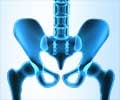Digital therapy triumphs over drugs in easing men's urinary problems. Pelvic exercises via app lead to significant improvement.
- Combining pelvic floor exercises and behavioral therapy via smartphone app proves highly effective in alleviating frequent urination in men
- App-based therapy surpasses traditional drug treatments, offering relief without the associated side effects
- Therapy benefits both overactive bladder and enlarged prostate patients, signaling a promising alternative for diverse bladder emptying disorders
Randomized trial comparing efficacy of pelvic floor muscle training with a digital therapeutic motion-based device to standard pelvic floor exercises for treatment of stress urinary incontinence (SUV trial): An all-virtual trial design
Go to source). The world's first randomized controlled trial investigating the effectiveness of pelvic floor training when combined with behavioral therapy and delivered through a smartphone application was conducted as part of BEST Trial (Bladder Emptying Disorder Therapy) in Germany. The results presented at the Congress demonstrated significant improvements in lower urinary tract symptoms such as hesitancy, straining and frequent urination among men who participated in this app based therapy.
App-based therapy offers symptom relief without side effects, transforming men's lives. #urination #application #medindia’
Bladder Disorders Among Men
Bladder emptying disorders are a common problem amongst males; it starts from age 30 and affects many individuals above 50 years old. However, despite clinical guidelines recommending physiotherapy, behavioral treatment, and lifestyle changes as first-line treatments they are often underused due to lack of adequate evidence supporting their use. Traditional medications may yield unpleasant side effects, and surgery remains a last resort for severe cases.Professor Christian Gratzke, co-lead of the BEST Trial from University Hospital Freiburg, Germany, emphasizes the significance of the findings, stating, "We're confident that we now have that data, and making this form of therapy available digitally could be a game-changer for the millions of men who struggle day-to-day with issues emptying their bladder."
The trial involved 237 men aged over 18, half of whom received standard medical care while the other half accessed the Kranus Lutera app-based therapy in addition to standard care. Participants recorded urination diaries and completed questionnaires assessing symptom severity and overall quality of life. After 12 weeks, those utilizing the app-based therapy reported substantial improvements in symptoms and quality of life compared to the control group.
The study demonstrated the superiority of app-based therapy over medical treatment without any reported side effects or challenges in accessing the smartphone application. These findings challenge historical treatment paradigms and offer a welcome alternative to conventional drug therapies.
Professor Jean-Nicolas Cornu of Charles Nicolle Hospital, France, underscores the importance of this breakthrough, stating, "This is the first randomized controlled trial looking at physiotherapy and behavioral therapy for bladder emptying disorders, and it shows a very positive effect over conventional drug treatment."
Results of App-based Therapy for Overactive Bladder and Enlarged Prostate for Men
The study revealed that both overactive bladder and enlarged prostate patients benefited from the therapy, highlighting its broad applicability across different forms of bladder emptying disorders.As researchers advocate for broader adoption and further exploration of app-based therapy's long-term efficacy, its potential to transform clinical practice and alleviate symptoms without the drawbacks of traditional medications becomes increasingly evident. This innovative approach not only offers an effective solution for men with bladder emptying disorders but also signifies a paradigm shift towards personalized, digital healthcare interventions tailored to individual needs.
Reference:
- Randomized trial comparing efficacy of pelvic floor muscle training with a digital therapeutic motion-based device to standard pelvic floor exercises for treatment of stress urinary incontinence (SUV trial): An all-virtual trial design - (https://pubmed.ncbi.nlm.nih.gov/33866003/)
Source-Medindia









